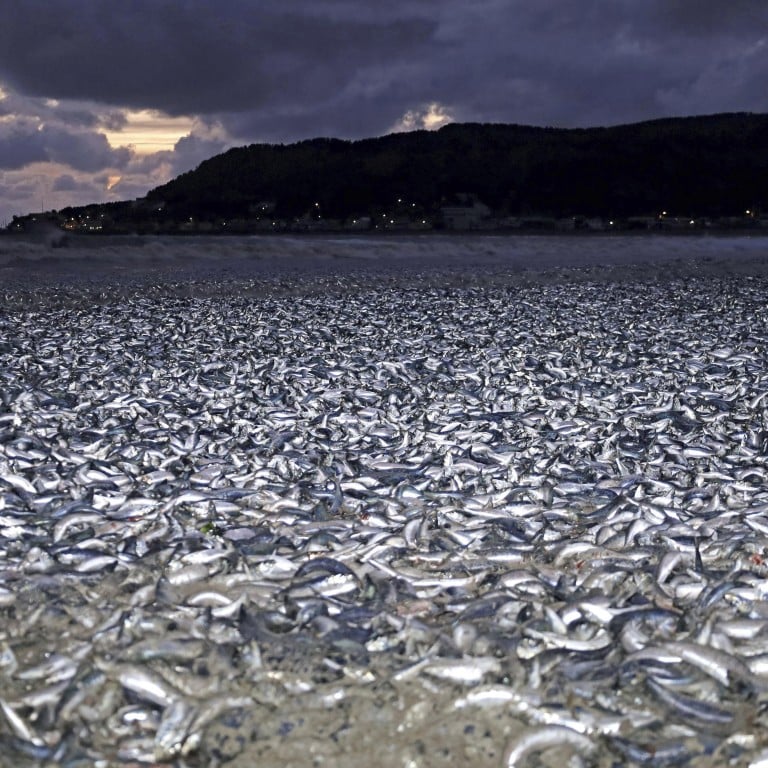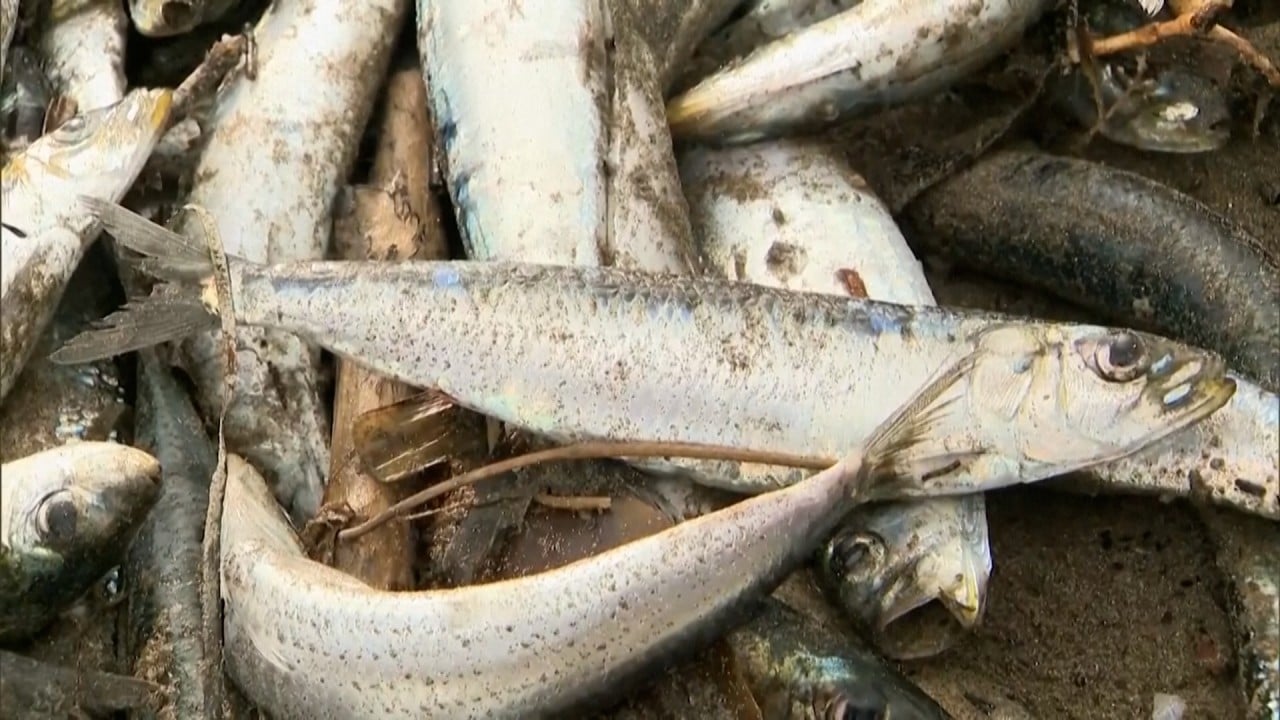
Japan mass fish death: did lack of oxygen kill at least 1,000 tonnes of sardines and mackerels at Hokkaido beach?
- Another possibility that led to the mass death at the northern village of Toi was the much colder water experienced by the fish during migration
- Local residents have ignored a warning from officials and picked up piles of the fish for their consumption
Marine biologists have concluded that the fish in Hakodate, Hokkaido Prefecture, died from a lack of oxygen in the water in one of two possible scenarios.
The first theory is that the fish were being hunted by predators and were herded into the shallow bay by the village of Toi, where the huge numbers of fish quickly consumed all the available oxygen in the water.
The alternative suggestion is that the fish encountered a sudden pocket of significantly colder water on their migration route, which weakened them.
The fish began washing ashore on December 7, with television footage showing the 1.5km shoreline ankle-deep in the silver fish. Local officials estimated that around 1,000 tonnes of fish had come ashore but suggested the actual figure might be higher.
“At this time of the year, large schools of sardine and mackerel are migrating south off the coast of Hokkaido, and they are often preyed upon by larger predators, such as dolphins and tuna,” said Kevin Short, a naturalist and professor of cultural anthropology at Tokyo University of Information Studies.
“It seems that a large number of these fish were herded into this shallow, half-moon bay where they were panicked and very quickly used up all the oxygen because they had nowhere to go,” he told This Week in Asia.
Why Thailand’s favourite fish may soon be off the menu for good
There have been similar cases in the past, Short said, although he admitted that cases involving such numerous fish were “very unusual and not at all common”.
Previous cases have been recorded in parts of Tokyo Bay and the Inland Sea, between the main island of Honshu and Shikoku, with “red tide” algae blooms believed to be a factor contributing to the mass fish death. In those cases, the microorganisms had drifted to the seabed and consumed much of the oxygen in the water, making it difficult for the fish to survive, Short said.
Daisuke Imura, an official with the Ministry of the Environment based at the Shiretoko World Heritage Centre in northern Hokkaido, said there had been other similar incidents in the prefecture in recent years, although never on such a large scale.
Chinese imports of Japanese carp halt after authorities fail to renew paperwork
“I think the general understanding is that they died from a lack of oxygen in the water, and we had an issue like this last year here in Shiretoko,” he said. “They said at the time that water temperatures were unusually low, but the local fishermen did not care and they quickly went out and brought in as many as they could.”
Imura said it was not clear whether climate change in general was having an impact on fish stocks, but he added that rising temperatures were having an obvious effect onshore. Snowfall had been lower than usual this year, continuing a trend for the past five years or so, he said, with one local operator forced to seek out new routes for his snowshoe trekking tours.
Local officials in Toi have told local people not to eat the fish washed up on the beach as it was not clear what had killed them, while efforts to clear the beach of the fish began over the weekend.
Bear attacks up in Japan as climate change pushes them out of natural habitats
Nevertheless, local people have been wading through the piles of fish and picking out some for their freezers, as seen in news footage.
“The local officials were worried that the fish had been poisoned somehow, so they were being cautious, but it now seems that was not the case,” Short said. “The people that got out there quickly and took some for themselves will have fish in stock for a few months now, but they would have had to be fast.
“Any that were left out in the sun for more than a couple of hours would have started to decompose pretty quickly, and I imagine the smell in the village is pretty strong at the moment,” he said.


